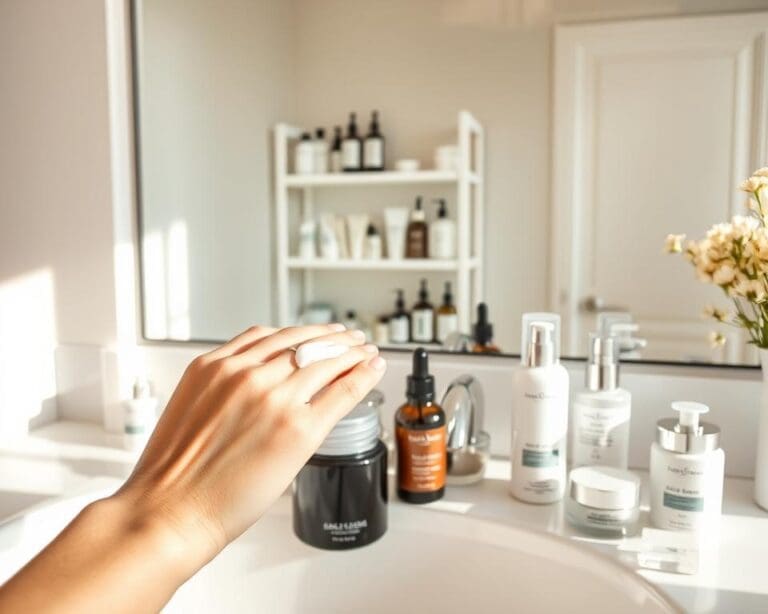In today’s fast-paced world, understanding the significance of self-care is crucial for enhancing overall wellness. Self-care is not merely a luxury; it encompasses a variety of actionable strategies aimed at improving mental and physical health. Research indicates that effective self-care practices can significantly reduce stress levels, elevate mood, and increase life satisfaction. By recognising the intertwining relationship between mental and physical health, individuals can employ holistic health tips that foster resilience and promote wellbeing.
Embracing self-care is essential for maintaining a balanced lifestyle, positioning it not only as a preventive measure but also as a critical component in managing health challenges. As we delve into tailored self-care tips and routines, it’s vital to appreciate their roles in nurturing a better quality of life.
Understanding the Importance of Self-Care
Self-care occupies a pivotal role in fostering both mental and physical health. It encompasses purposeful activities aimed at promoting wellbeing, encompassing a broad spectrum of self-care practices. Understanding the significance of self-care forms the foundation for adopting effective mental health strategies and physical wellbeing techniques.
What is Self-Care?
Self-care refers to the intentional actions undertaken to improve and maintain health. This concept spans various dimensions, including emotional, physical, and spiritual wellbeing. Engaging in self-care activities, such as regular exercise, balanced nutrition, and adequate rest, contributes to a more resilient state of mind and body. This forms the basis for robust self-care advice that anyone can implement in their daily routine.
The Relationship Between Mental and Physical Health
The interconnection between mental and physical health is profound. Neglecting one can adversely affect the other. For instance, a regular practice of physical activities not only bolsters physical fitness but significantly elevates mental health, reducing the likelihood of anxiety and depression. Incorporating self-care practices into everyday life can create a balanced approach to overall wellbeing.
Common Misconceptions About Self-Care
Many people hold misconceptions about self-care, often viewing it as an indulgence rather than a necessity. The belief that self-care is selfish can prevent individuals from prioritising their wellbeing. It is vital to reframe self-care as an essential part of life, promoting not only personal health but also enhancing relationships and productivity. Recognising these truths is vital in adopting effective mental health strategies and integrating self-care into daily life.

Self-Care Tips for Mental and Physical Health
Incorporating effective self-care practices into daily life can remarkably enhance both mental and physical wellbeing. A thoughtful approach to self-care routines provides structure while promoting resilience in the face of life’s challenges. Here are some tailored tips to foster wellness through daily routines, mindfulness, and nutrition.
Daily Routines for Wellbeing
Establishing structured daily routines is crucial for maintaining mental and physical self-care. Start by prioritising activities that nurture your overall health. Some helpful practices include:
- Maintaining a regular sleep schedule to optimise rest and rejuvenation.
- Engaging in physical exercise, such as walking, yoga, or dancing, to elevate mood and boost energy levels.
- Incorporating leisure activities that bring joy and relaxation, like reading or painting, into your day.
- Setting aside time for nature walks to connect with the environment and improve mental clarity.
Mindfulness and Meditation Practices
Integrating mindfulness and meditation into your daily routine can provide invaluable benefits for mental and physical self-care. Consider these approaches:
- Practising deep breathing techniques to centre your thoughts and calm your mind.
- Engaging in guided meditation sessions to explore your inner self and enhance emotional awareness.
- Utilising mindfulness techniques such as gratitude journaling to cultivate positive thinking.
- Adopting body scan exercises that promote relaxation and awareness of physical sensations.
Nutrition and Its Impact on Mental and Physical Health
Nutrition and its impact on mental and physical health must not be underestimated. A balanced diet contributes significantly to overall wellbeing. To support your mental and physical self-care journey, consider the following:
- Incorporating a variety of fruits and vegetables into meals to ensure adequate vitamins and minerals.
- Opting for whole grains and lean proteins that sustain energy levels without causing spikes in blood sugar.
- Staying hydrated by drinking sufficient water throughout the day, aiding cognitive function and physical energy.
- Exploring the benefits of omega-3 fatty acids found in fish or nuts for promoting mental clarity.
Effective Strategies for a Holistic Self-Care Approach
Adopting a holistic self-care approach involves recognising the interconnectedness of mental, physical, and emotional wellbeing. By integrating various aspects of wellness practices into your daily routine, you create a personalised strategy that meets your unique needs. One effective way to enhance your routine is by incorporating mindfulness techniques and physical activities, which are proven holistic health tips for improving mental and physical health.
Regularly evaluating and adjusting your self-care advice is essential for long-term success. As your circumstances and requirements evolve, so should your strategies. Results from research indicate that individuals who remain adaptable in their self-care routines experience enhanced health outcomes and a greater overall life satisfaction. This adaptability underlines the importance of developing a comprehensive plan that encourages sustainable habits.
Ultimately, the commitment to wellness practices is an investment in your life’s quality. Embrace the notion that self-care is not a luxury but a necessity; it empowers you to cultivate resilience and maintain balance amidst life’s challenges. As you embark on this journey, remember that prioritising your wellbeing is a profound and transformative act—one that paves the way for a fulfilling and healthy lifestyle.








